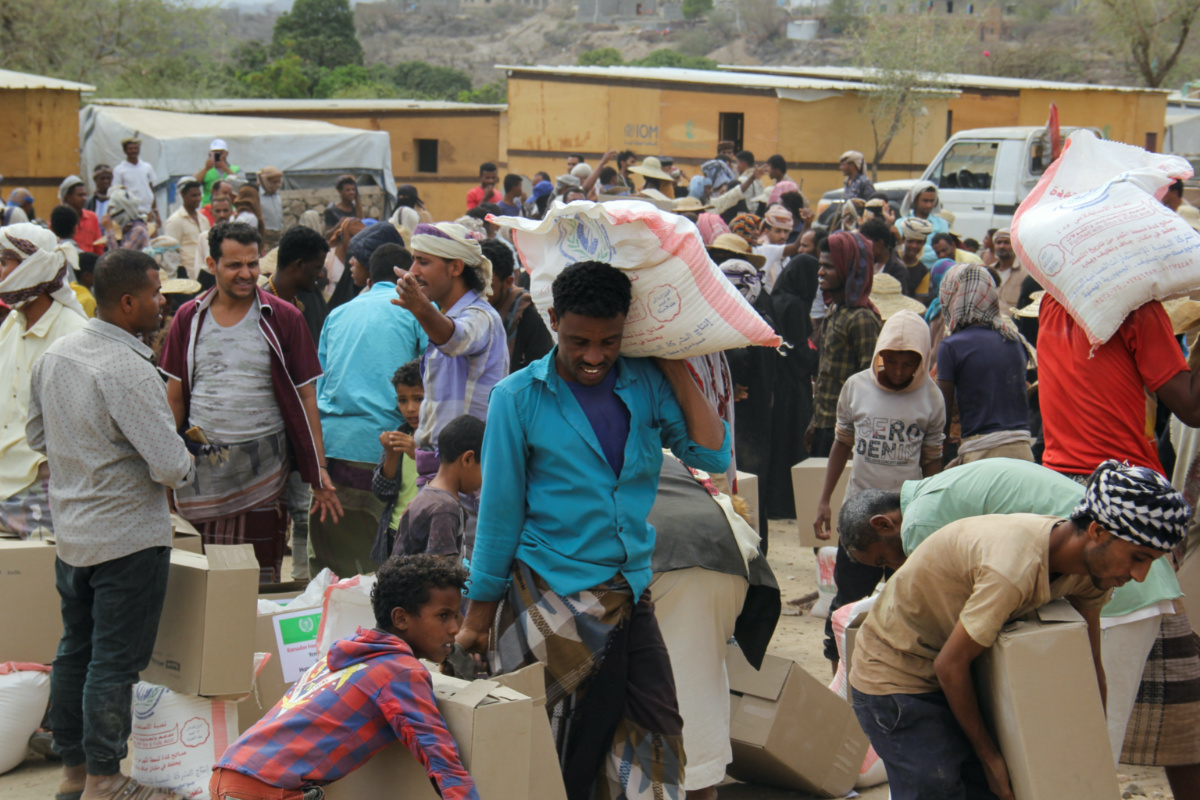Baghdad, Iraq
Reuters
The number of people facing acute food insecurity worldwide has more than doubled to 345 million since 2019 due to the COVID-19 pandemic, conflict and climate change, the World Food Programme said on Wednesday.
Before the coronavirus crisis, 135 million suffered from acute hunger worldwide, said Corinne Fleischer, the WFP’s regional director, told Reuters. The numbers have climbed since and are expected to soar further because of climate change and conflict.

Internally displaced people collect food aid distributed by a charity in Taiz, Yemen, on 8th April. PICTURE: Reuters/Anees Mahyoub/File photo
The impact of environmental challenges is another destabilizing factor that can drive food scarcity and lead to conflict and mass migration happening.
“The world just can’t afford this,” Fleischer said. “We see now 10 times more displacement worldwide because of climate change and conflict and of course they are inter-linked. So we are really worried about the compounding effect of COVID, climate change and the war in Ukraine,” she said.
In the Middle East and North Africa, the impact of the Ukraine crisis has had massive repercussions, Fleischer said, underlining both the import dependency of the region and its proximity to the Black Sea.
“Yemen imports 90 per cent of its food needs. And they took about 30 per cent from the Black Sea,” Fleischer said.
The WFP supports 13 million of the 16 million people who are in need of food assistance, but that their assistance only covers half a person’s daily needs because of a lack of funds.
Costs had gone up 45 per cent on average since COVID and Western donors have faced massive economic challenges with the war in Ukraine.
For oil exporting countries such as Iraq, that benefited from the surge in oil prices following the outbreak of the war in Ukraine, food security is at risk.
Iraq needs about 5.2 million tons of wheat but only produced 2.3 million tons of wheat, she said. The rest had to be imported, which cost more.
Despite state support, severe drought and recurring water crises are endangering the livelihood of smallholders all over Iraq, she said.






